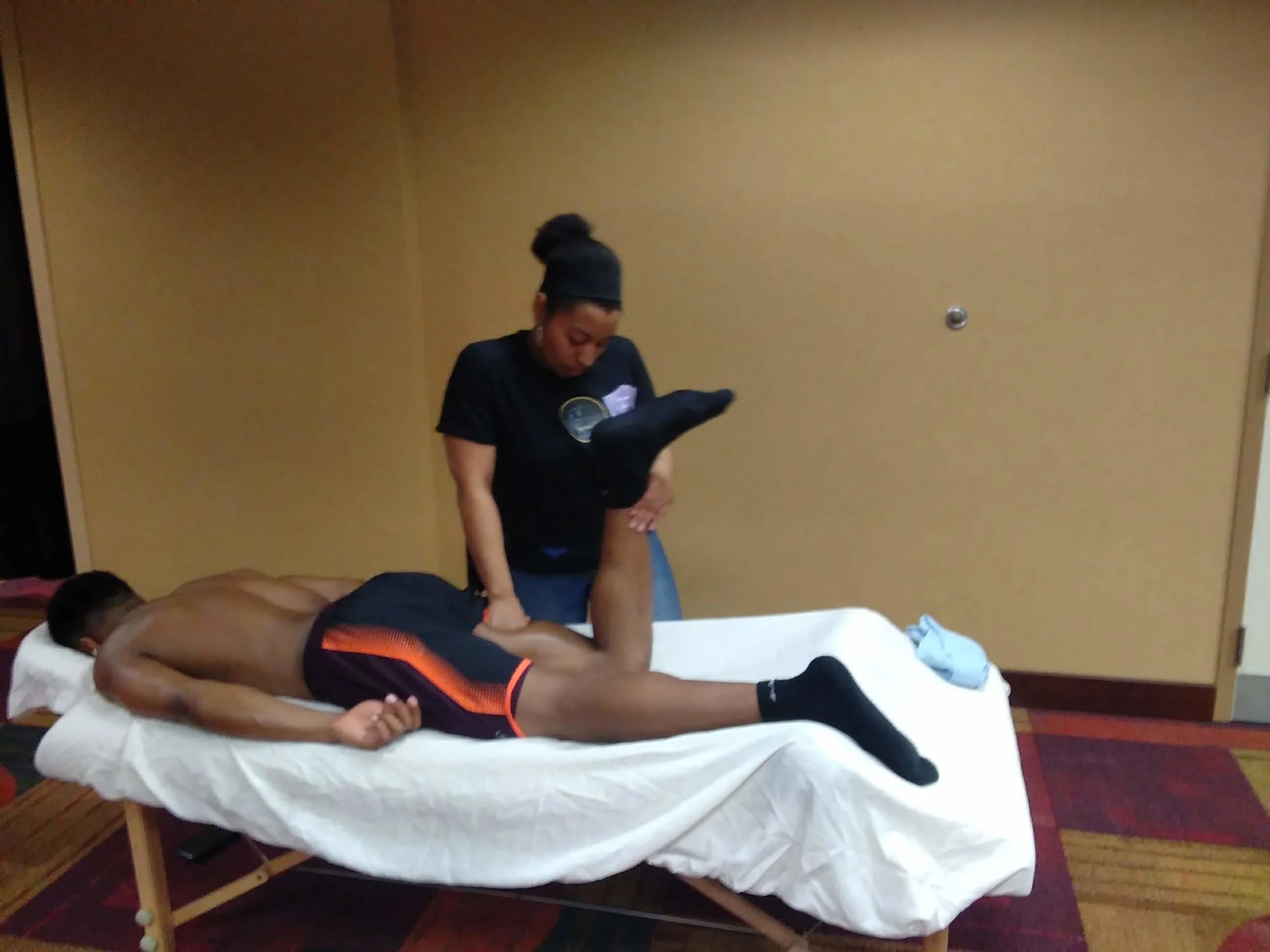Recover. Improve. Prevent (R.I.P To Injuries)
Living Truth Inquirer
Recovery. Improvement. Prevention.
Injuries happen. Knee pain, pulled muscles, tweaked backs- the list goes on, and once injury strikes, athletes don’t have the time or patience to sit around and let injuries heal properly. Instead of accepting a fate of injuries, it’s time to take control and embrace a more preventative approach. Athletes who support their bodies daily with a strong foundation of quality foods and result- driven therapy will establish a strong defense against muscle strains and tears and are less likely to get injured. Sport injuries are often a sign of nutrition and muscle imbalances. When it comes to preventing injuries quality nutrition and therapy is a deal breaker. Our Recover. Improve. Prevent (R.I.P) system will bring death to all injuries.
Recovery
Our main priority is providing nutrients through wholesome food first. Supplements are great, but food provides more nutrients than supplements ever will. When injury strikes and you have to limit your physical activity, there is no need for the post-workout protein shakes or energy bars to fuel your workout. Instead, we use food to fulfill caloric needs, to supply protein to aid strength and growth, and to provide basic vitamins without the use of supplements. We believe athletes should be able to obtain both adequate macro-nutrients (protein, carbohydrates, and fats) and micro-nutrients through a variety of foods. Our chefs ensure the nutrition plan will be tailored to an athlete’s phase of injury. The right foods can speed injury recovery. Proper nutrition proves to be the best way to maximize recovery.
Muscles can become damaged for a variety of reasons, most commonly by injury, surgery or over use. Improving recovery through massage can help treat acute pain, chronic pain, and repetitive injuries in professional and collegiate athletes. Very often, healing can be slowed down due to a range of reasons, including swelling, poor circulation, muscle fatigue and a build-up of tension. To best repair injured muscle fibers, blood flow must be maximized. Our sports therapy loosens tight muscle groups to improve the availability of blood-borne nutrients needed for recovery.
Improvement

![DSC_9801[488].jpg](https://images.squarespace-cdn.com/content/v1/590a4137d482e9dd78999d7d/1551815097802-MRD4RY5NMMNB7285RBO0/DSC_9801%5B488%5D.jpg)




Our chefs are a liaison between athletes and athlete nutritional needs. Improving optimal performance involves meal timing, quality/type of fueling before, during and after a workout, recovery nutrition protocol, hydration/cramping, supplement use (as needed) , sleep, overall diet quality, and balance/ratio of nutrients to support training. A diet that is insufficient in any of these areas will result in poor performance, fatigue, and failure to meet goals. We want to be sure that athlete’s daily training diet supports their athletic aspiration. Our meals offer the winning edge, and their daily food choices to promote future health and longevity.
Research surrounding common sports injuries reveal that sprain and ligament injuries are the most common. Around 30% of injuries occur in training. It is important to plan to maintain energy during all forms of sporting endeavors as fatigue leads to errors and injury. A remedial massage helps to improve muscle condition. We manipulate muscular tissue, aim to stretch, relax and loosen muscles to repair damaged muscle fibers and tissues to improve their condition. Maintaining a muscle health helps to prevent injury as the muscles are less likely to weaken and fatigue.
Prevention








Athletes should maintain a nutritious diet on a daily basis to maximize nutrient stores rather than ramping up their nutrition once an injury occurs. Staying nutritionally balanced is one way to ensure that you stay healthy, injury free and on track with your athletic goals. Filling your body with an abundance of high quality nutrients from a variety of fresh fruits and vegetables, whole grains, raw nuts and seeds, organic meats and pure clean water are key. Eating a balanced and whole-foods diet is the best way to keep your energy levels up and your body functioning smoothly, without injury.
By improving a muscles condition, it is less likely to damage during activity or exercise therefore preventing injury. Athletic performance can be hampered due to DOMS, loss of range of motion, and decreased muscle strength. Delayed onset muscle soreness (DOMS) is a common physiological response experienced by athletes after initiating or resuming an exercise routine, after increasing exercise intensity, or after performing eccentric forms of training (i.e. downhill running). These symptoms may be temporary and are part of the natural process of strength and conditioning training, but the ramifications for sports performance during competition may be staggering. Hence, regular sports therapy is needed to help prevent the physiological strain that daily performance cause on the body.
In conclusion, Recent evidence suggests that half of the total number of injuries can be considered severe, leading to an average of >3 weeks without training or competing. Thus, interventions that can increase the rate of healing and decrease the time to return to play are important. Nutrition and Massage has been proven to be a great addition in athlete training program for both injury prevention and management. Proper recovery is the missing link to enhance training, minimize injury, and optimize performance. Optimal performance requires optimal care. Balancing performance against recovery is key to optimizing your training and success.

